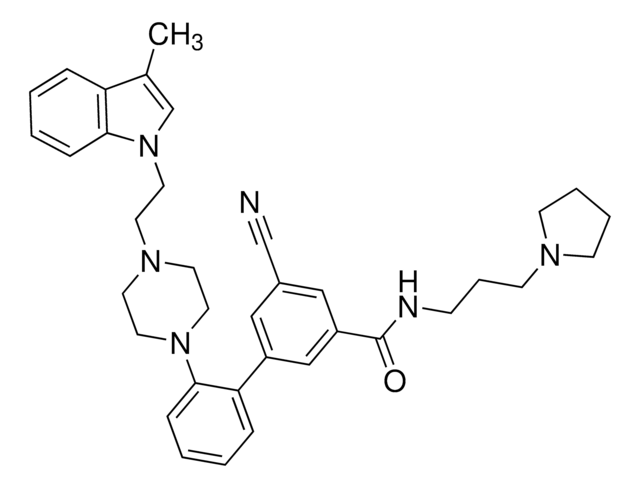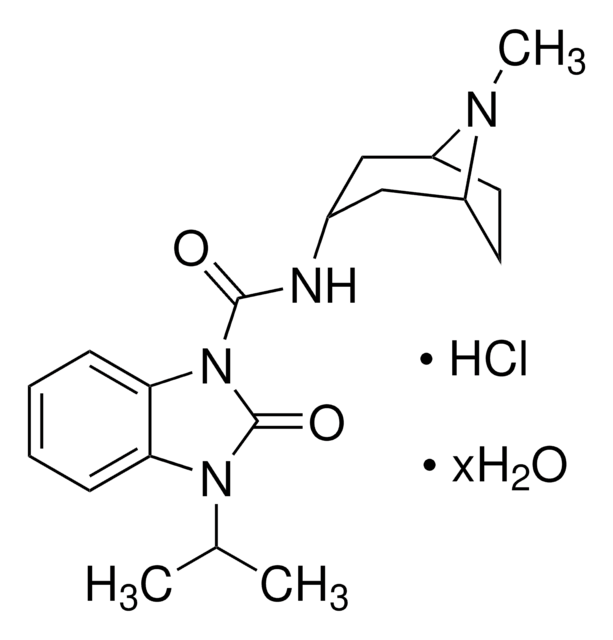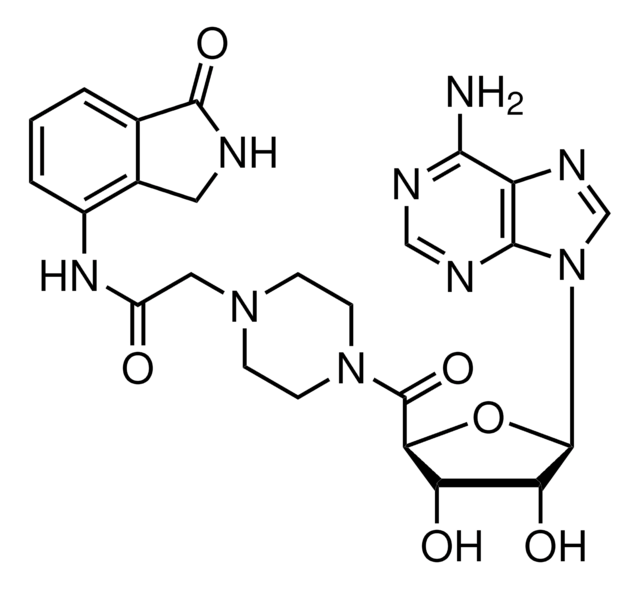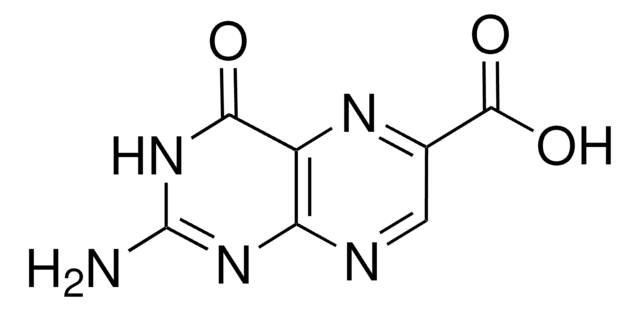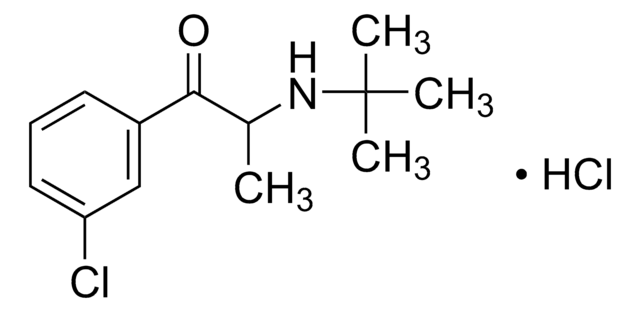Wichtige Dokumente
B3438
Pyrabactin
≥98% (HPLC)
Synonym(e):
4-Bromo-N-(2-pyridinylmethyl)-1-napthalenesulfonamide, 4-Bromo-N-(pyridin-2-ylmethyl)naphthalene-1-sulfonamide
About This Item
Empfohlene Produkte
Qualitätsniveau
Assay
≥98% (HPLC)
Form
powder
Farbe
white to off-white
Löslichkeit
DMSO: >10 mg/mL
Lagertemp.
room temp
SMILES String
Brc1ccc(c2ccccc12)S(=O)(=O)NCc3ccccn3
InChI
1S/C16H13BrN2O2S/c17-15-8-9-16(14-7-2-1-6-13(14)15)22(20,21)19-11-12-5-3-4-10-18-12/h1-10,19H,11H2
InChIKey
GJSDYQXOSHKOGX-UHFFFAOYSA-N
Anwendung
Biochem./physiol. Wirkung
Signalwort
Danger
H-Sätze
Gefahreneinstufungen
Acute Tox. 3 Oral - Eye Irrit. 2
Lagerklassenschlüssel
6.1C - Combustible acute toxic Cat.3 / toxic compounds or compounds which causing chronic effects
WGK
WGK 3
Flammpunkt (°F)
Not applicable
Flammpunkt (°C)
Not applicable
Hier finden Sie alle aktuellen Versionen:
Besitzen Sie dieses Produkt bereits?
In der Dokumentenbibliothek finden Sie die Dokumentation zu den Produkten, die Sie kürzlich erworben haben.
Unser Team von Wissenschaftlern verfügt über Erfahrung in allen Forschungsbereichen einschließlich Life Science, Materialwissenschaften, chemischer Synthese, Chromatographie, Analytik und vielen mehr..
Setzen Sie sich mit dem technischen Dienst in Verbindung.